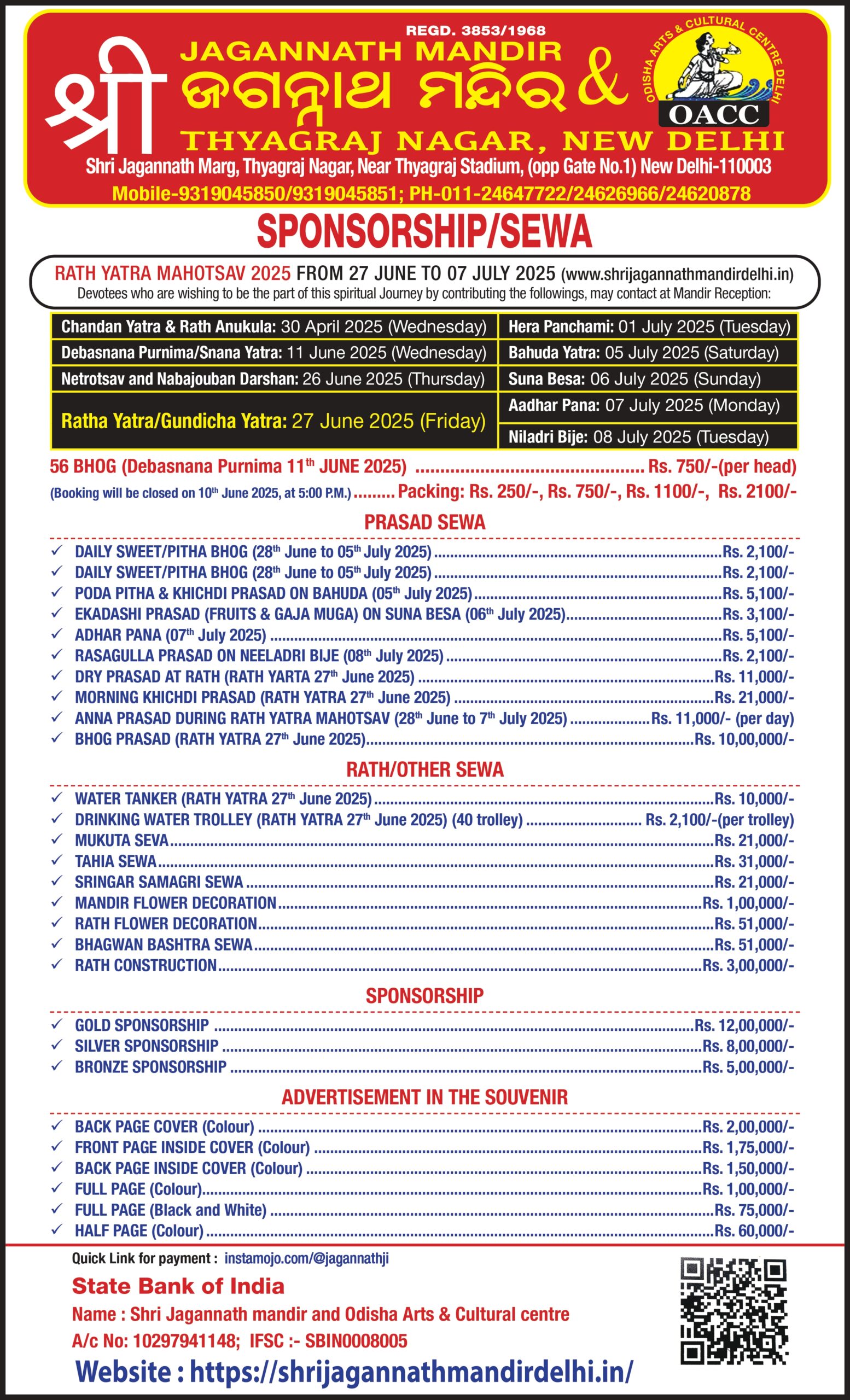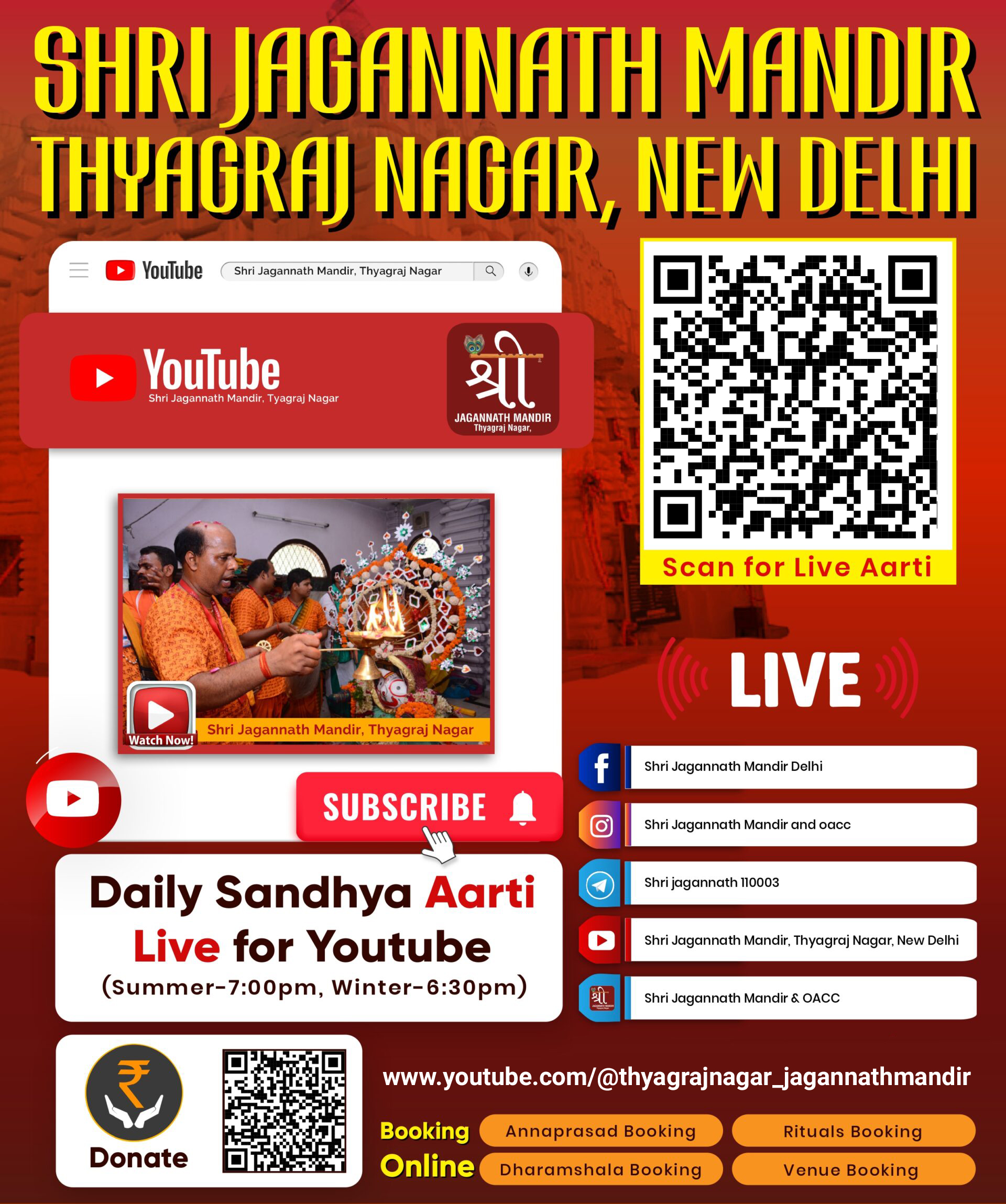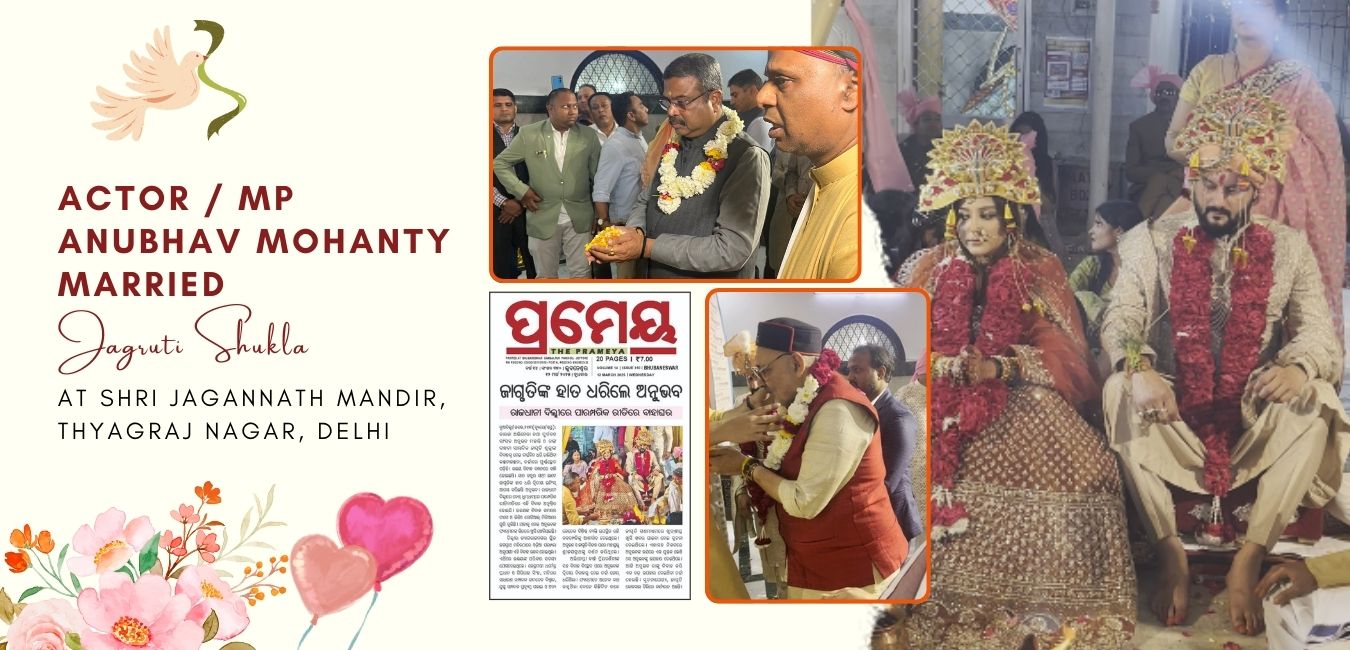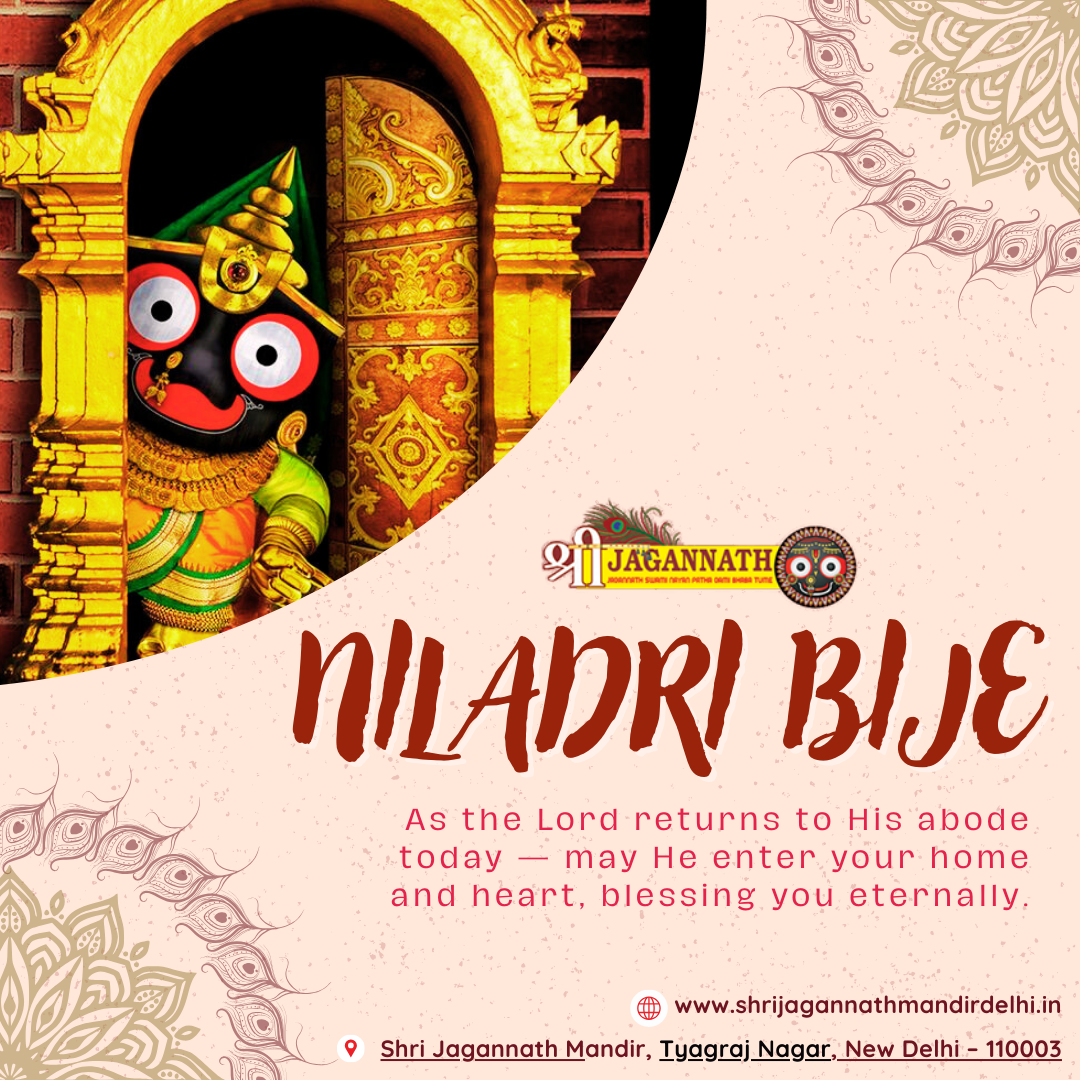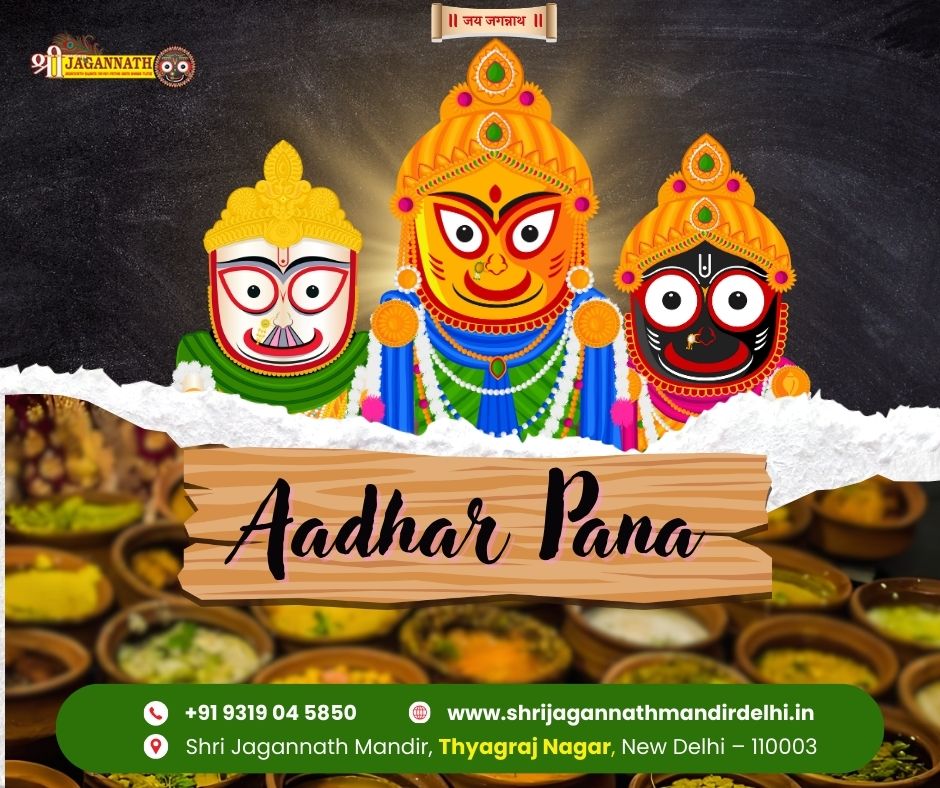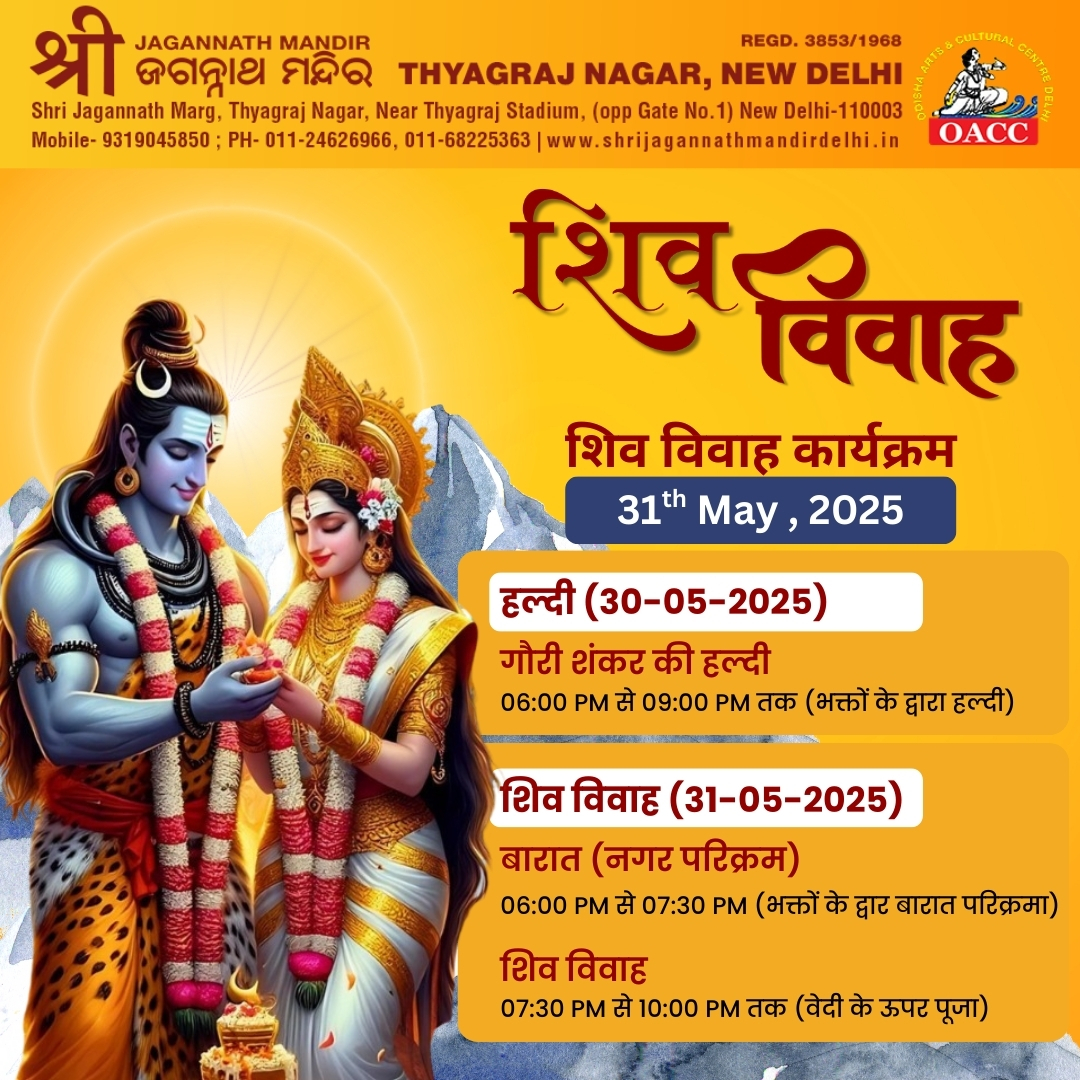🚩 Pulling of Rath Yatra Chariots – Symbolism, Rituals & Devotion
The pulling of Rath Yatra chariots is one of the most divine and awaited rituals of the Rath Yatra celebration at Shri Jagannath Mandir, Thyagraj Nagar, Delhi. Each year, devotees gather in large numbers to pull the decorated wooden chariots of Lord Jagannath, Lord Balabhadra, and Goddess Subhadra – a spiritual act believed to cleanse sins and bring divine blessings.
🌿 Mythology Behind the Chariot Pulling
The ritual originates from Puri, Odisha, where it’s believed that the deities visit their aunt’s house, the Gundicha Temple. By pulling their chariots, devotees symbolically bring the divine closer to their hearts.
🔧 Preparations and Rituals
🪵 Chariot Construction
-
New chariots are handcrafted every year using sacred wood.
-
Each deity has a unique chariot:
-
Lord Jagannath – Nandighosa
-
Lord Balabhadra – Taladhwaja
-
Goddess Subhadra – Darpadalana
-
🌸 Decoration
The chariots are adorned with flowers, flags, and colorful fabrics, creating a divine visual experience.
🔔 Sacred Rope Ceremony
Before the pulling begins, special mantras are chanted, and thick ropes, known as Sankhachuda, are tied to the chariots.
🧘♀️ Pulling the Chariots: A Spiritual Experience
Devotees chant “✨Jai Jagannath!”✨ as they pull the chariots through the temple premises. This act symbolizes:
-
Drawing the divine closer to humanity
-
Spiritual purification
-
Community unity through devotion
👉 Participating in the pulling is considered a rare and blessed opportunity.
🕉️ Significance of the Ritual
-
Devotional Upliftment: Engaging in the pulling invokes inner peace and deeper faith.
-
Spiritual Cleanse: It is believed to wash away sins and karmic burdens.
-
Equality: Devotees from all walks of life participate equally, promoting inclusivity.
-
Preservation of Culture: It upholds ancient traditions passed down for centuries.
📍 At Shri Jagannath Mandir, Thyagraj Nagar
Our temple continues this sacred tradition with devotion, allowing the local Delhi community to experience the divine celebration of Rath Yatra in its full glory. The chariot pulling ceremony here is accompanied by bhajans, dhol beats, flower showers, and distribution of Mahaprasad.
❓FAQs – Pulling of Rath Yatra Chariots
Q. Why do devotees pull the chariots during Rath Yatra?
A. Pulling the chariots is considered an act of devotion and a way to bring oneself spiritually closer to the Lord.
Q. Where does the Rath Yatra take place in Delhi?
A. At Shri Jagannath Mandir, Thyagraj Nagar, where the tradition is celebrated with grandeur and community participation.
Q. Can anyone participate in the chariot pulling?
A. Yes, people from all castes, religions, and backgrounds are welcome to join and pull the chariots.
Q. Is Mahaprasad distributed after the chariot pulling?
A. Absolutely! Devotees receive Mahaprasad, which is considered sacred and full of divine blessings.
Q. What is the spiritual benefit of pulling the chariot?
A. It is said to remove sins, bring prosperity, and create a deep bond with Lord Jagannath.
🙏 Conclusion
The pulling of Rath Yatra chariots at Shri Jagannath Mandir, Thyagraj Nagar, is more than a ritual—it’s a powerful expression of faith, tradition, and collective spirituality. Join us in this divine journey and feel the blessings of the Lord flow through every step, every chant, and every pull of the sacred rope. 🌼



